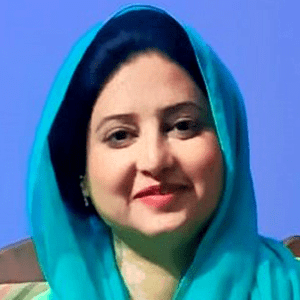Few stories in the rich tapestry of legends spun around the life of leaders and kings inspire as much amazement, faith, and curiosity as the amazing Hajj trip of Emir Gaddafi. Not to be mistaken with the Libyan leader Muammar Gaddafi, Emir Gaddafi is a less well-known but greatly revered spiritual leader from West Africa whose piety and dedication have motivated many disciples. Not only because of the trip itself but also because of the supernatural intervention claimed to have defined his pilgrimage to the Holy Hijaz, the holy ground of Makkah and Madinah, which still echoes through the hearts of believers.
Conflict, turmoil, and bureaucratic obstacles defined the year, so many people found great difficulty starting the holy journey. Renowned for his dedication to Islam and his spiritual leadership style, Emir Gaddafi had said he really wanted to make Hajj that year. Knowing the logistical difficulties and the almost impossibility of planning such a trip given the situation, his supporters silently asked for a miracle. Due to regional conflicts and international scrutiny, the Saudi authorities had tightened visa rules and limited commercial flights.
Against all the chances, Emir Gaddafi stayed true to his goal. His close advisers claim he would frequently exclaim, “If Allah has written for me to be His guest at His House, no barrier on earth can stand in the way.” His unwavering faith was a subtle, potent monument to tawakkul, total reliance in Allah.
Since then, many have considered what transpired next as nothing less than miraculous. Unannouncedly arriving at a remote airport close to Emir Gaddafi’s house was a small aircraft not booked for any diplomatic or commercial use. Witnesses verified the incident including religious leaders and municipal officials. Apart from a small flight crew, the plane, run by an unknown but legal airline, was empty. Most remarkably, the flight schedule showed authorization for a straight path to Jeddah while listing no passengers for that leg of the trip.
Under interrogation, the crew said they were following orders to wait for a “distinctive guest” whose identity had not been revealed. When Emir Gaddafi’s name was revealed at last, everyone present seemed to grow still. Dressed just in white, the Emir came with just a small entourage and no obvious bags. Grinning, he went up the aircraft’s steps and vanished inside the cabin. The engines sprang to life in a matter of minutes, and the airplane left, the Holy Land its target.
Rumors fanned the area for days. Some muttered about angels in the shape of guys organizing the logistics; others thought the aircraft was dispatched by a strong foreign ally. But the most often accepted story, particularly among the devout, was that Allah had dispatched a method for His servant to reach His holy House, a divine intervention evocative of the tales of prophets and saints of antiquity.
Later, pilgrims who observed Emir Gaddafi worshiping at the Haram of Makkah, his head lowered, his voice choked with emotion, confirmed his arrival in the Hijaz. Avoiding public recognition and denying interviews or pictures, he accomplished the Hajj with modesty and elegance. Many who met him reported a great calm that came from his presence; many pilgrims who crossed his route later said they were brought to tears just from witnessing him pray.
Still, the story’s extraordinary quality did not stop there. Emir Gaddafi got ready to go home after finishing his pilgrimage and praying in Madinah. Once more, the same plane returned to fetch him without fanfare or official plans. Once more without a passenger manifest, the flight crew said they had been told to return to the precise spot at a specified moment. Uneventful and calm, the return flight landed safely in West Africa, where the Emir was greeted by a softly crying audience filled with thankfulness and wonder.
Since then, the narrative has become legendary in many other spheres not because of the drama of the occurrence but more because of what it represents: the infinite power of divine will and the benefits of unquestionable trust. Many people’s path confirmed their belief that the Hajj is a spiritual summons rather than only a physical one. The grace of Allah by itself guarantees one’s place among the pilgrims, not riches, power, or preparation.
The occasion has motivated documentaries, novels, and lectures. While elders relate the narrative as evidence that piety is still respected by the Almighty in remarkable ways, young Muslims in religious schools study it as part of their moral and spiritual teaching. Though they have argued about the practicalities and the ramifications, religious experts agree one thing: this was a moment of divine pity.
Years later today, the runway the airplane used for take-off is still a peaceful, windswept location. Still, for those trying to re-establish the spirit of the narrative, it has grown to be somewhat a pilgrimage destination itself. Praying at dawn or evening, supplicants yearning for their own miracles often mutter the name Emir Gaddafi with respect.
The narrative of Emir Gaddafi’s Hajj serves as a potent reminder that the world of the unseen still exists in a society predominated in doubt and materialism. For the believers, it is a call to trust in Allah’s decree, to reaffirm their faith, and to keep in mind that the road to the holy could unexpectedly open itself when the heart is sincere.








